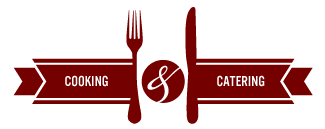It is now considered a norm that whenever we hear the word “Food”, the only thing that comes to mind are whether the food is continental, oriental etc. and their taste and special ingredients. With the -passage of time, we have grown the ambition of exploring new hotels and restaurants in search of taste, flavor, presentation and quality. Since the birth of humanity, what started off as a basic necessity of survival of the humankind has now become one of the most profitable business where every restaurant, hotel or even a small food stall seems to be competing with each other to provide the best food, quality and ambiance.
People are willing to spend loads of money just to have a taste of delicacies and in this competition, the entities who are racing the most are chefs who are in constant state of crafting new dishes and flavors in order to stay ahead of the food business. As a result, Chefs of the current age are mainly focused on providing customers with the variety of foods but somewhere in this entire race, they have completely forgotten or have chosen to ignore the “Ethics of Food” in the food industry itself.
However, Ido Fishman being one of the leading chefs of the current era has not forgotten the importance of Food Ethics and thus, has laid out a really good foundation around this which we will be discussing below.
What are Cooking Ethics?
No matter it’s a legal, engineering or a medical profession, the most important and prominent component of any profession is Ethics and every individual in these professions from the top to the most bottom level are expected to practice these ethics. Ethics regulate how the officials of any field of work behave with their clients whether it’s pertaining to privacy, confidentiality or any minor element involving more than one entity. However, the definition of ethics and business become vague and a bit unclear when it comes to restaurant setting and cooking. Every restaurant wants to serve their guests with the best food possible but the real question is that what does it actually mean and what extent are you willing to go or how much are you willing to put at stake in order to achieve that?
Almost every restaurant or a hotel has their own ideas or understanding of Kitchen Ethics, however, there are a few industry standards available that one may come across if in the beginning of this line of business:
Prefer Local Suppliers over Global Suppliers
Although, it may be cheaper to order wholesale ingredients and products from a large manufacturer, supplier or a company, who most of the times supply with the goods on a very cheaper and discounted rates but as per Ido Fishman, it would be considered a contribution towards the success of farmers if we buy raw products straight from them which would ensure that the ingredients we are acquiring are fresh and straight out of the farms. By doing so, we would not only help sustain the local economy in the operational country but would also enable us to provide our consumers with healthy and fresh products.
Abide by the laws
As per Ido Fishman, there should never be a ten-second rule in any kitchen meaning that the kitchens should never store any cooked food only to be microwaved and served to the consumer. By doing so, you are not only risking the reputation of your cooking as well as the restaurant or hotel you’re working for but also putting the lives of your guests at risk by providing them with unhealthy or non-fresh food. Therefore, even if it takes you around 20-25 minutes to serve food to the customer, you should do that because by doing so, you are ensuring that your guest is eating healthy and fresh food.
Also, one of the most important rule to be practiced in the kitchen is to keep it extremely clean and to make sure that the sanitation system is up-to the required standards of any culinary platform. These are the practices that can save us from unnecessary legal ramifications or any harm to your reputation.
CREATE CONSISTENT PORTION SIZES
It is a commercial tactic by any food chain to advertise an exaggerated portion or size of their product, only to serve the attracted consumers with portions which hardly meet the commercialized descriptions. By doing this, the chains may be able to save money and meet their quota targets faster, but it’s neither a good nor a long term idea. Therefore, always deliver what you have promised as it’s always a good practice to exceed your clients’ expectations rather than failing to meet them.
Don’t haste it and do it right
One of the fastest ways of reaching success is to ensure that the food consumed by your customers is fresh and is of good quality. If you have the slightest doubt of a dish being undercooked or not close to the taste standards, it’s better to dump it rather than serving your customer with it. By doing so, you are putting a really bad impression of your cooking ethics and restaurant or hotel to the customer. So, make it right even it takes you more time or practice.
It’s never personal
You may have heard a saying that “A hungry man is an angry man”. If not then it’s about time you realized that it is a true meaning as in the culinary field, you are bound to have customers who would test your patience to the max and there are times when the serving side ends up arguing with the customer which is the most unacceptable practice. Most of the times, the customers are unhappy with the wait time so it is wise to pre-inform the customers of how much time it would take to ready a dish just to set their expectations and even if the customer argues, it should be the practice of the server to stay calm and professional, and never take it personal.
So what’s your take?
At the end of the day, it may sound somewhat impossible to get used to these practices but these practices aren’t rare because all of the successful franchises you see today have followed the same path that has been portrayed by Ido Fishman.





